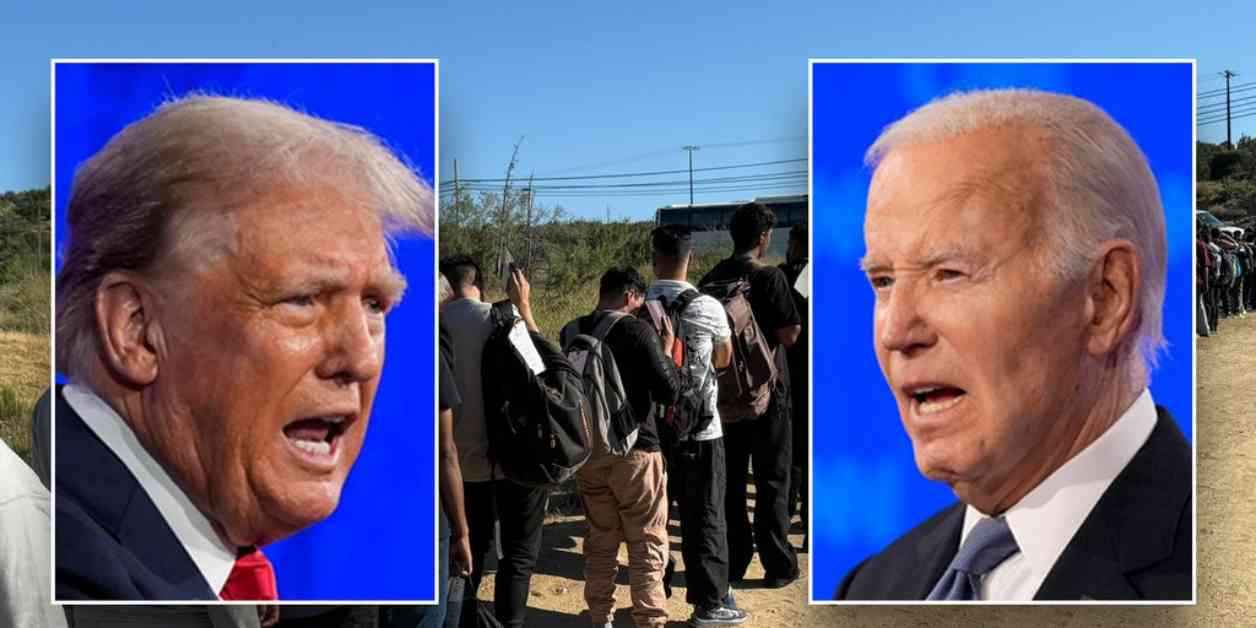The recent decline in illegal border crossings at the U.S. southern border has sparked new debates and discussions, particularly surrounding the Trump administration’s impact on border security. Lora Ries, director of the Heritage Foundation’s Border Security and Immigration Center, has emphasized how President Trump’s swift and effective border policies have raised questions about the necessity of bipartisan border legislation proposed during the 2024 campaign.
Enhancing Border Security: Trump’s Impact
One of the most significant revelations has been the substantial reduction in illegal border crossings, with recent reports indicating a 15-year low in single-day border apprehensions. This success has been attributed to the stringent policies implemented under the Trump administration, which have sent a clear message to potential illegal immigrants that unauthorized entry will not be tolerated.
Border Patrol Chief Mike Banks highlighted the remarkable 94% decrease in southern border crossings compared to the previous year, acknowledging the key role of Trump’s administration in this achievement. By taking aggressive measures to address border security, Trump managed to significantly curb illegal activities at the border, prompting a reevaluation of the efficacy of proposed bipartisan legislation.
The Political Landscape: Blame Game and Policy Debates
Throughout the 2024 campaign, Democrats and Republicans engaged in a heated blame game regarding the failure of the bipartisan border legislation. Democratic leaders, including former President Joe Biden and Vice President Kamala Harris, pointed fingers at Trump and his allies for obstructing the passage of crucial legislation designed to address border security issues.
Senate Minority Leader Chuck Schumer and other prominent Democrats underscored the importance of bipartisan efforts to secure the border, emphasizing the need for additional resources such as immigration judges and asylum officers. However, the failure to pass the legislation due to partisan disagreements fueled tensions between the two parties, leading to a prolonged debate over border security policies.
Expert Insights and Alternative Solutions
Despite the contentious nature of the border security debate, experts like Lora Ries have highlighted alternative solutions that could have been pursued to address the crisis effectively. Ries pointed out that the Senate had the option to pass HR-2, the Secure the Border Act, which had already been approved by the Republican-controlled House.
By shedding light on existing legislative options and emphasizing the significance of swift and decisive action, experts like Ries have offered insights into the complexities of border security challenges. While the blame game continues to dominate political discourse, it is essential to explore alternative avenues for enhancing border security and addressing the root causes of illegal immigration.
In conclusion, the ongoing discussions surrounding Trump’s border success and the failed bipartisan legislation underscore the complexities of border security issues in the United States. As policymakers and experts continue to navigate this challenging terrain, it is crucial to consider a holistic approach that combines effective policy measures with bipartisan cooperation to ensure the safety and security of the nation’s borders.


